Al-Muabbada (Arabic: المعبدة; Kurdish: Girkê Legê, Classical Syriac: ܡܥܒܕܗ) is a town in the Qamişlo Canton, in the Jazira Region of the Democratic Federation of Northern Syria.
According to the 2004 census, Al-Muabbada had a population of 15,759. The majority of the residents are Kurds, with a large Arab minority.
According to the Kurdish news agency “Rudaw”, Hafez al-Assad’s Ba’athist Party changed the name of the town to Al-Muabbada.
It was the sixth city of Rojava (Western Kurdistan) to announce liberation as part of the Rojava Revolution.
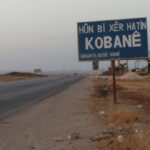
In preparation for the forthcoming municipal elections in NES, planned for 11th of June [now postponed to 8 August, 2024], the DAANES passed a new law defining the administrative divisions of the NES region. This follows the DAANES’ publication of the new Social Contract in December 2023.
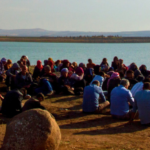
The history of the Kurdistan, the ecological way of life of the people, the effects of the attacks, and the methods of resistance, are intrinsically related. In order to make them more understandable, we focused our report on the area of Koçerata. This region, its people and civil infrastructures in particular, were heavily targeted by Turkish airstrikes in winter 2023-2024.
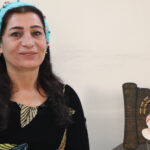
With 78 cooperatives, women also play a leading role in building a solidarity economy in Rojava. The construction of the economy takes place under war conditions.
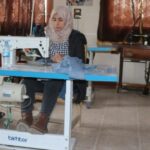
Khalat joined a sewing training course organized by the Foundation of the Free Women in Syria in the city of Qamishli, northeastern Syria, four years ago. She learned the profession and then landed a job within a sewing workshop affiliated with the Foundation. “I got a job opportunity in the workshop after mastering the profession,
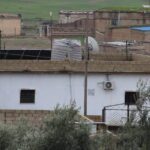
There is an increase in purchasing solar panels by the region’s residents following the recent Turkish airstrikes on fuel facilities and oil wells.
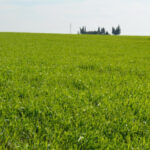
Agricultural cooperatives created by women in 8 villages in Qamishlo grow products such as wheat and barley. In a year with good rainfall, women aim for an important harvest.
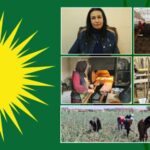
Women in Rojava improve economy Pointing out that the women have improved the economy in Rojava, Armanc Mihemed, executive of the Economy Committee of Kongra Star, said that they have achieved significant successes by realizing many projects.
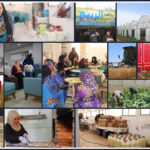
Despite the simple capabilities under the capitalist economy, and the constant attacks of the occupier on the regions of northeast and Syria, the economic toil of women has bore fruit to good results during 2020, as they played a leading role in easing the economic crisis that the region suffer from.
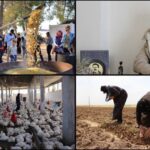
Armanc Mohammed, head of the Women’s Economy of North and East Syria, evaluated their work during the past year and discussed the projects that had been implemented and the economic level that women had reached in North and East Syria. Armanc said that women had begun a revolution in the economic field and given color to the year 2020 with their efforts.
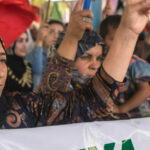
The Rojava revolution is under attack. Debbie Bookchin and Emre Şahin share their thoughts on this unique revolutionary process after recently visiting the region.
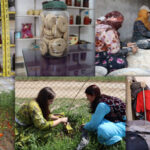
Kongra Star continues to develop projects and establish cooperatives in northeastern Syria to promote women’s economic empowerment.
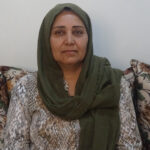
Kongra Star Economy Committee provides employment opportunities to women by creating new workplaces for women in the city of Hasakah, northeastern Syria.
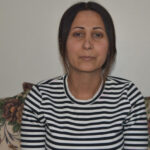
The Women's Economy Committee in Hasakah, northeastern Syria, promotes women’s economic empowerment by developing projects that serve women, preserving women’s rights and preventing women’s exploitation.
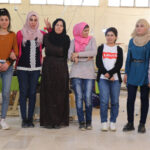
Despite the embargo and attacks, grassroots democratic women's structures in Rojava continue to work on building a self-managed women's economy. This is intended to ensure self-sufficiency and empower women.
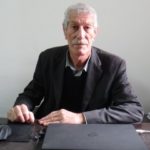
The House of Co-operatives has initiated a project of building a bakery in Girkê Legê to satisfy people's need for bread.















